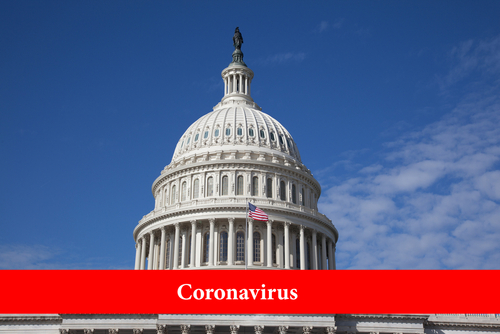
Virologists still don’t know a lot about the coronavirus (COVID-19), but expect important facts surrounding length of incubation and repeat infections to be answered in the coming weeks as public and private institutions introduce widely available testing for the dangerous disease, a panel of experts with Johns Hopkins University told staff on Capitol Hill Friday afternoon.
“Our testing capacity is not currently adequate and we need more and we need it as soon as we can have it,” Dr. Lisa Maragakis, senior director of infection prevention for Johns Hopkins Health System, told about 100 congressional staffers during a 90-minute briefing Friday.
Johns Hopkins and other public institutions as well as several private companies, like Quest Diagnostics, expect to be able to introduce widely available testing for COVID-19 in a matter of days or weeks, according to Maragakis.
The wider availability of testing will go a long way towards answering many of the questions still unanswered about the spreading virus. “Our goal is for everyone with symptoms can be tested,” said Maragakis. “We’re not there yet.” She added that health professionals “need the ability to test rapidly at scale for any given patient.”
But even with broader testing a vaccine is not expected before 12 months to 18 months, “if all goes well,” said Dr. Tom Inglesby, director of the Johns Hopkins Center for Health Security.
Among the important questions still unanswered are: how long of an incubation period does the virus have? Inglesby said the experts believe that period is anywhere from one day to 14 days, with a five-day average. Can infection prevent reinfection? The Johns Hopkins experts said it is unknown. Can patients have false positive tests? Following the testing and approval by regulators of a vaccine there needs to be plans for mass manufacturing, he noted.
He praised Congress for the rapid approval of emergency funding of $8.3 billion to deal with the crisis. “The response has been very swift in terms of emergency appropriations,” he stated.
The Johns Hopkins health experts introduced the congressional staffers to the school’s real-time online tracking dashboard showing current numbers of people infected with the virus, how many have died and how many have survived and the location by county and country of each. The dashboard showed as of Friday afternoon there were more than 101,000 known cases worldwide and 3,400 deaths, for a 3.4 percent mortality rate. Authorities have clocked 55,671 recoveries of known cases.
But the mortality rate has varied in different locations, with a 4.3 percent death rate in Wuhan Province in China and a 3.4 percent rate in Italy, so far. In South Korea, where authorities have tested more than 125,000 people, the rate has been just 0.6 percent so far.
The dashboard has attracted more than 1.2 billion views a day since its inception.
Typical symptoms of infection are flu-like, with a sore throat and/or coughing and a mild temperature. But in China, as many as 20 percent of the cases have no symptoms, according to Inglesby.
Certain important facts are known. The virus is most likely passed airborne through droplets, like sweat, tears or spittle. As a result, many on Capitol Hill are foregoing the traditional handshake these days and opting instead for elbow bumps or other means of personal acknowledgment. Maragakis said there is still a chance of spreading germs with elbow bumps but suggested it is a safer greeting. “We need to come up with a different kind of accepted social greeting,” she said.
Dr. Jason Farley, professor of nursing in the Division of Infectious Diseases in the Johns Hopkins University Schools of Nursing and Medicine, said among the best methods of protection is hand hygiene with Purell, alcohol pads or regular soap and water. “Use what you’ve got at home,” he said. If you get sick, use a surgical mask to prevent the spread of droplets, he added. And stay home and restrict travel if you are sick, he emphasized. “Hand hygiene. Hand hygiene. Hand hygiene,” he insisted.
He also explained that some surgical masks may not fit adequately over facial hair like beards or mustaches. “Know how to use it effectively and safely,” he cautioned of surgical masks.
Inglesby said it is too soon to cancel travel plans for spring break, conferences or work until broader testing establishes where the high-risk areas are. “That’s going to be a decision people need to make on their own,” he said. “A lot will depend on the destinations … At this point, there is not travel guidance.”




